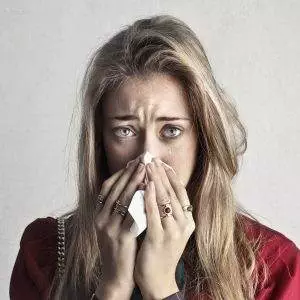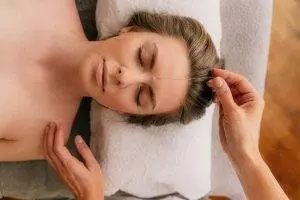-
 Art of Wellness Acupuncture & Traditional Chinese Medicine (TCM)11704 Wilshire Blvd, Suite 295, Los Angeles, CA, 90025
Art of Wellness Acupuncture & Traditional Chinese Medicine (TCM)11704 Wilshire Blvd, Suite 295, Los Angeles, CA, 90025
myartofwellness@gmail.com310-451-5522 Office Hours
MonClosedTue7:30 am --4 pmWed7:30 am --4 pmThu7:30 am -- 4 pmFri7:30 am -- 4 pmSat7:30 am -- 4 pmSunClosedOur office opens from Tuesdays to Saturdays 7:30 am to 4 pm, will be closed on Memorial day, Independent day, Labor day, Thanksgiving day, Christmas and New year.
-
Recent Posts
- How to Treat Chronic Kidney Disease (CKD) With Acupuncture and TCM
- How to Treat Edema With Acupuncture and TCM
- How to Treat Cirrhosis With Acupuncture and TCM
- How to Treat SIBO With Acupuncture and TCM
- How to Treat Pruritus With Acupuncture and TCM
- How to Treat MCAS With Acupuncture and TCM
- How to Treat Shin Splints With Acupuncture and TCM
- How to Treat Dysautonomia With Acupuncture and TCM
- How to Treat Myofascial Pain Syndrome With Acupuncture and TCM
- How to Treat Costochondritis With Acupuncture and TCM
- How to Treat Ankylosing Spondylitis With Acupuncture and TCM
- How to Treat Gastroparesis With Acupuncture and TCM
- Sign up to receive news and updates and get my free report:“The Top 10 Reasons to Try Acupuncture”

Asthma
How to Treat Sinusitis With Acupuncture and TCM
By Xiaomei Cai, L.Ac., Ph.D. and Qineng Tan, L.Ac., PhD.

Stuffy nose, nasal congestion, sinus pressure or sinus headache? Lost your sense of smell? These could be sinusitis symptoms. Acute sinusitis is a sinus infection that can cause sinus pain, postnasal drip, and difficulty breathing. Acupuncture and TCM can help relieve sinus congestion and prevent chronic sinusitis.
The sinuses are four sets of hollow cavities inside the head (forehead, cheeks, and nose) that produce mucus and then allow it to drain through the nasal passageways. This process helps keep bacteria and allergens out of your nose.
What causes sinusitis? Sinusitis occurs when a sinus infection causes the sinuses to become inflamed and not drain properly. This usually happens because of a viral infection, like the common cold, or a bacterial infection or fungal infection. A long-term candida infection can also contribute to the development of sinusitis.
Sinusitis can seem similar to rhinitis, also known as allergic rhinitis. Rhinitis refers to swelling and inflammation inside the nose, and can also cause symptoms like nasal congestion. The difference is that rhinitis is brought on by an allergic reaction—commonly “hay fever,” or seasonal allergies—instead of an infection, and rhinitis is centered in the nasal passages, rather than the sinuses.
Factors like allergies, asthma, structural blockages, or weakened immune systems can elevate the risk of someone getting sinusitis. When the sinuses are blocked, bacteria and other pathogens can proliferate more easily.
Acute sinusitis usually clears up on its own in about 10 days, although getting acupuncture treatment and herbs can help bring relief sooner.
If sinus pain, stuffed up nose, and yellow-green mucus are still present after two weeks, it may mean that there is an infection that isn’t clearing up.
People are more at risk for developing sinusitis if they have:
- Seasonal allergies, hay fever
- Large adenoids (tonsils)
- Cystic fibrosis
- Smoke cigarettes
- Weak immune system due to HIV
- Take immunotherapy for autoimmune condition
- Unusual formation of the sinuses
- Are in an environment where they are exposed to lots of germs, such as day care
About 14% of Americans are diagnosed with chronic sinusitis every year; it’s one of the most common reasons that people will be prescribed antibiotics. However, if the sinusitis is occurring due to a viral infection, antibiotics are not really helpful.
TCM modalities of acupuncture, herbs, and moxibustion can help relieve symptoms of sinusitis and sinus pain, as well as helping to address allergies, asthma, clear up infections, improve immune function, and reduce inflammation.
Chronic Sinusitis and Nasal Polyps

It is fairly common for people with chronic sinusitis to also have nasal polyps. Nasal polyps develop when the nasal tissue becomes swollen and inflamed to such a degree that fluid-filled sacs form.
If a person also suffers from allergies, then exposure to an allergen can cause the nasal polyps to become inflamed to the point that they block the nasal passages, causing difficulty breathing. When a person can’t breathe through their nose at night, in particular, it can lead to snoring and even sleep apnea.
Chinese herbal formulations that have antibacterial and antifungal properties can help to relieve overproduction of mucus and prevent nasal polyps from coming back.
Acupuncture treatment can also help people breathe easier and sleep better, stop snoring and relieve sleep apnea.
Top 5 Sinusitis Symptoms
Sinusitis typically begins with the usual symptoms of the common cold. Then, instead of clearing up after several days, the symptoms get worse. Symptoms of sinusitis include:
- Stuffy nose: thick, yellow, or greenish mucus causes a runny nose
- Postnasal drip: when mucus drips down the throat. Postnasal drip can be particularly uncomfortable at night, when you’re trying to sleep.
- Nasal Congestion: A blocked or stuffy nose makes it hard to breathe through the nasal passages.
- Sinus headache or Facial Pain: Pain, tenderness, and pressure around the eyes, cheeks, nose, or forehead, especially intensified when bending over.
- Loss of smell: Altered sense of smell.
Other signs of sinusitis may Include:
- Ear pressure
- Toothache
- Cough
- Sore throat
- Bad breath
- Fatigue
- Fever
Sinusitis Treatment
Medical treatment to help relieve symptoms of sinusitis typically involves:
- Regularly spraying saline nasal spray (or saltwater) into the nose helps rinse the nasal passages.
- Corticosteroid nasal sprays, such as fluticasone and budesonide, prevent and treat swelling in the nasal passages.
- Over-the-counter decongestants in liquid, tablet, or nasal spray can help relieve nasal congestion. However, nasal decongestants should be used for a limited time to avoid rebound congestion.
- If sinusitis is allergy-related, allergy medicines can alleviate allergy symptoms.
- Acetaminophen, ibuprofen, or aspirin may be recommended to manage face pain and sinus headaches.
- Antibiotics: Since acute sinusitis is often viral, antibiotics, which target bacteria, may not be immediately prescribed. Providers may adopt a “wait and see” approach, reserving antibiotics for severe, worsening, or prolonged cases.
For cases of sinusitis linked to allergies, immunotherapy, commonly in the form of allergy shots, may be recommended. Immunotherapy aims to desensitize the immune system to specific allergens, potentially reducing sinusitis symptoms triggered by allergies.
Acupuncture and Chinese herbs can provide a safe alternative treatment for sinusitis, without the side effects that some of these medications can cause.
Can Acupuncture Help Sinusitis?

TCM has been used for centuries to treat sinus conditions. An acupuncturist will carefully observe each individual patient’s symptoms and experience to determine whether warming or cooling herbs are necessary to help relieve sinus congestion and treat the underlying cause of the problem.
According to TCM theory, sinusitis can result from external factors of wind and cold, which can weaken the lungs, preventing the lung system from doing its job of protecting the body from infections. In TCM, we say that the spleen produces phlegm, and the lungs store phlegm.
In some cases, it is necessary to nourish the Spleen Qi in order to address underlying causes of mucus buildup and improve immune system function.
Specific acupuncture points can be very helpful for relieving sinus pressure, sinus headaches, and other symptoms of sinusitis. A few examples include Shen Ting (“Spirit Court”), Yin Tang (“Hall of Impression”), Ying Xiang (“Welcome Fragrance”), and Zhanzu.
One study of patients with sinusitis treated with acupuncture showed a 60% reduction in sinus pain, and significantly improved air flow.
Another study showed that patients who had already had surgery for nasal polyps who received Chinese herbs in addition to conventional medical treatment had better quality of life, with less symptoms of nasal discharge, difficulty breathing, and bad breath.
A review of studies pertaining to TCM treatment for chronic rhinitis concluded that acupuncture is indeed an effective alternative or adjunct treatment for symptomatic improvement.
A study that offered acupuncture treatment and herbal formulations to help relieve nasal polyps found that this method helped prevent the recurrence of polyps.
Acupuncture Near Me for Sinusitis
Sinusitis, nasal polyps, and rhinitis are common conditions that cause a lot of discomfort for millions of people every year. If you or someone in your family is prone to recurrent infections that cause sinus pain and pressure, it may be time to try alternative medicine to help address the underlying causes of sinus headache and a constant stuffy nose and postnasal drip.
*This article is for education from the perspective of Traditional Chinese Medicine only. The education provided by this article is not approved by FDA to diagnose, prevent, treat and cure human diseases. It should not stop you from consulting with your physician for your medical conditions. Traditional Chinese Medicine is based on Qi, which is an invisible force that usually cannot be observed by modern science. Because science focuses on testing ideas about the natural world with evidence obtained through observation, these aspects of acupuncture can’t be studied by science. Therefore acupuncture and Chinese herbs are often not supported by double-blind, randomized trials, and they are considered alternative medicine therapies in the United States.